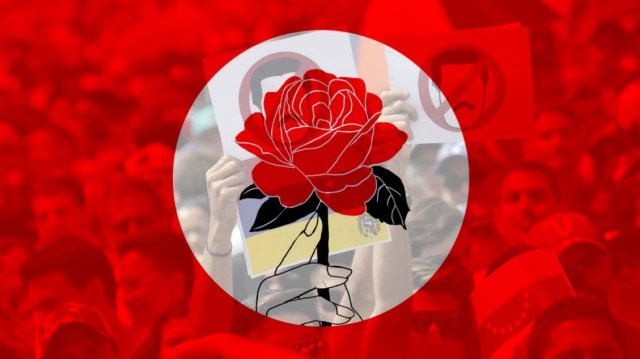
Anti-capitalist and anti-imperialist individuals and organizations are criticizing the DSA for supporting the Maduro regime. It’s a debate that reveals conflicting views on what socialism is.
By Caracas Chronicles – Clifton Ross
Jul 14, 2021
The stubborn refusal of leftists, especially socialists and communists, to see what was happening in Venezuela and their willful blindness, have been sources of constant and simmering rage within me. So when Venezuelan Workers Solidarity (VWS) called out Democratic Socialists of America (DSA) on its delegation visiting Venezuela for a tryst with the Maduro government in a luxury hotel, I was initially delighted.
The brilliant VWS critique led me to believe that perhaps self-defined socialists might even rethink their theories three decades after the collapse of “real socialism.” But that hasn’t been the case with the largest socialist organization in the U.S., Democratic Socialists of America (DSA). It seems they’ve yet to learn what Margaret Atwood recalls as one of her two verities. The anti-totalitarian author of The Handmaid’s Tale, who has evidently managed to politically sleepwalk through multiple visits to Cuba, says that “no government is its people,” precisely what Venezuelan Workers Solidarity (VWS) pointed out when the DSA began a crowdfunding campaign for a trip to Venezuela.
With Venezuelans in the U.S. and other countries calling DSA to account, a small sector of the Left is debating to whom should leftists extend their internationalist solidarity: socialist governments or the people (suffering) under them?
The VWS is very small. Two representatives I interviewed said there are some “25 or 30” in the U.S., and one might rightly suspect it’s closer to 25. The VWS also seems to be of relatively recent origin: their blog only goes back to November 2020. So when they speak out against the predominant socialist tendency, they’re even less likely to get a hearing from DSA than Trotskyites did from the Stalinist left in the years of “real socialism.” But make no mistake: the VWS is holding its own in the debate.
This debate comes to the fore in the larger question of what real socialism is after “real socialism.” For Bernie Sanders, and presumably, for a significant part of the DSA, it doesn’t mean what it historically meant: the state ownership of the means of production and distribution. We can either go with the real “socialisms” of today – according to The Week, the list is “surprisingly small”: Cuba, China, Vietnam and Laos – or go the hipster route and just use the word as a shibboleth to signal that you’re cool. The DSA takes the middle way between these two routes toward a definition. In some ways, it’s been more inclusive of what it considers socialism, and it also tends to hew to a more traditional, one might say, meaning-based, definition.
For instance, despite the democratic element in its name, the DSA smells like Leninism. As DSA member Dan La Botz says of the International Committee’s dance with Maduro: “Support for authoritarian governments doesn’t speak well of DSA’s commitment to democratic socialism.” In its proposed first draft of a program (2021), the DSA said they are “standing in solidarity with the working class of every country, and establishing relations with existing socialist projects, including the governments of Cuba, Venezuela, Bolivia…” Fortunately, that language was removed in the second draft of the DSA platform – perhaps the VWS had an impact?
Whatever their vision of socialism, both the DSA and the VWS are clearly “anti-capitalist” and “anti-imperialist.” DSA advocates “abolishing capitalism,” for instance, though what they mean by capitalism isn’t by any means clearer than their definition of socialism. As for the “anti-imperialism,” VWS member Simon stated flatly in an email he sent me, that “nothing good has ever come from U.S. intervention in Latin America, it’s been a force against democratic rights and peoples’ self-determination.” Here I would concede that the record of the U.S. is mixed – support, or even tolerance, for Videla in Argentina, Stroessner in Paraguay, and other dictators, not to mention training the genocidal armies in Guatemala and elsewhere, were atrocious crimes. Nevertheless, a Manichaean perspective such as Simon’s on the U.S.’ historic role in the world is so simplistic it’s cartoonish. These poorly defined positions on capitalism and international politics (imperialism) raised questions for me, questions for which I received no answers from Simon or the other VWS members I interviewed. Because they continue to haunt me, I thought I might leave them here.
…
Read More: Caracas Chronicles – The leftist backlash against the Democratic Socialists’ fun trip to Venezuela
…

